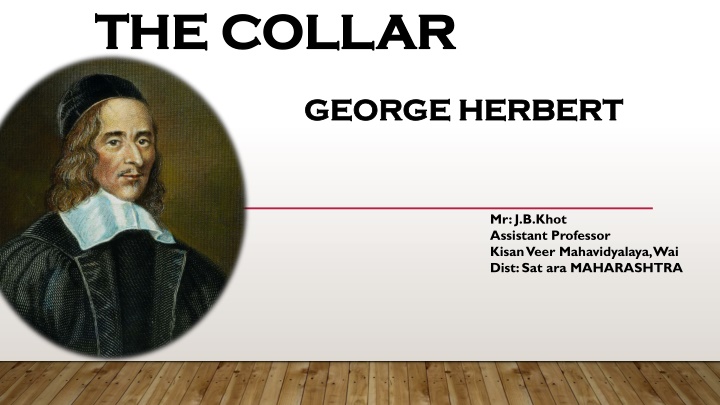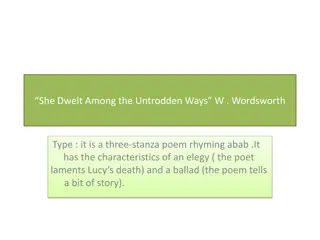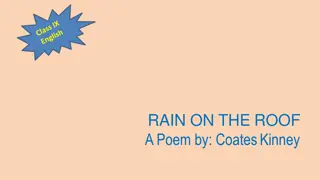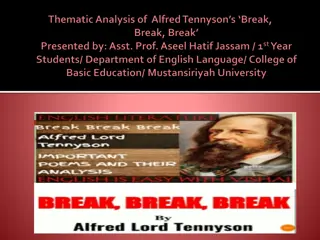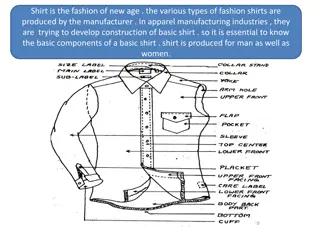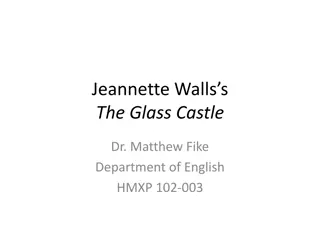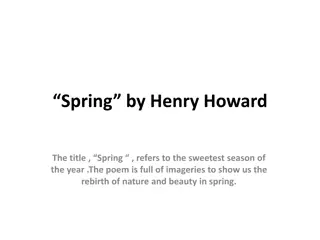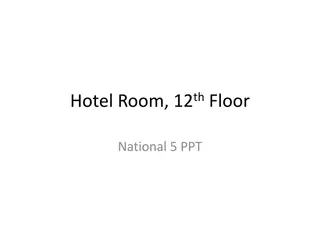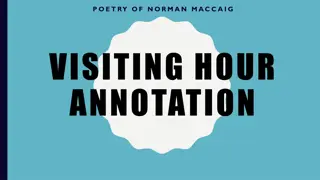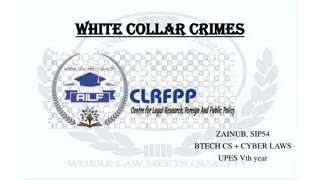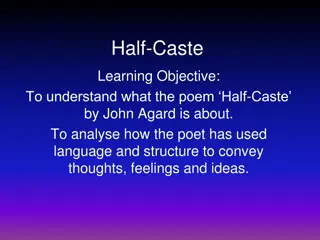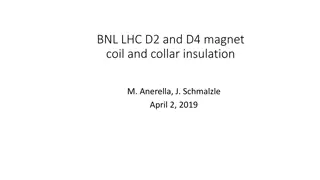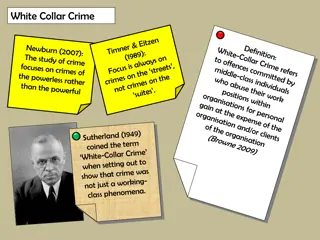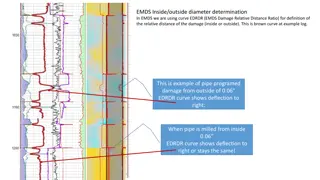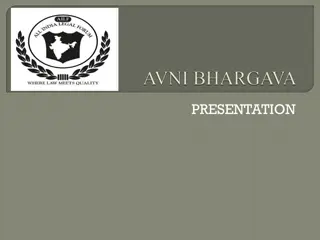Analysis of George Herbert's Poem "The Collar" and the Poet's Background
George Herbert's poem "The Collar" published in 1633 depicts a man experiencing a loss of faith and anger over his commitment to God. The themes include struggles with beliefs and desire for autonomy. Herbert was a Welsh-born poet, orator, and priest known for his pure language choices and devotion. The poem reflects his inner conflicts and search for freedom amidst religious constraints.
Download Presentation

Please find below an Image/Link to download the presentation.
The content on the website is provided AS IS for your information and personal use only. It may not be sold, licensed, or shared on other websites without obtaining consent from the author.If you encounter any issues during the download, it is possible that the publisher has removed the file from their server.
You are allowed to download the files provided on this website for personal or commercial use, subject to the condition that they are used lawfully. All files are the property of their respective owners.
The content on the website is provided AS IS for your information and personal use only. It may not be sold, licensed, or shared on other websites without obtaining consent from the author.
E N D
Presentation Transcript
THE COLLAR THE COLLAR GEORGE HERBERT GEORGE HERBERT Mr: J.B.Khot Assistant Professor Kisan Veer Mahavidyalaya, Wai Dist: Sat ara MAHARASHTRA
ABOUT THE POET George Herbert (3 April 1593 1 March 1633) was a Welsh-born poet, orator, and priest of the church of England. A major metaphysical poet Notable for the purity and effectiveness of his choice of words. One of the foremost British devotional lyricists. He served in the Parliament of England in 1624 and briefly in 1625.
ABOUT THE POEM Published in 1633. The poem depicts a man who is experiencing a loss of faith and feelings of anger over the commitment he has made to God. He denounces his commitments and proclaims himself "free". The poem's themes include the struggle with one's beliefs and the desire for autonomy in defiance of religious restriction.
THE COLLAR I struck the board, and cried, No more; I will abroad! What? shall I ever sigh and pine? My lines and life are free, free as the road, Loose as the wind, as large as store. Shall I be still in suit? Have I no harvest but a thorn To let me blood, and not restore What I have lost with cordial fruit?
Sure there was wine Before my sighs did dry it; there was corn Before my tears did drown it. Is the year only lost to me? Have I no bays to crown it, No flowers, no garlands gay? All blasted? All wasted? Not so, my heart; but there is fruit, And thou hast hands.
Recover all thy sigh-blown age On double pleasures: leave thy cold dispute Of what is fit and not. Forsake thy cage, Thy rope of sands, Which petty thoughts have made, and made to thee Good cable, to enforce and draw, And be thy law, While thou didst wink and wouldst not see. Away! take heed; I will abroad.
Call in thy deaths-head there; tie up thy fears; He that forbears To suit and serve his need Deserves his load. But as I raved and grew more fierce and wild At every word, Methought I heard one calling, Child! And I replied My Lord.
Thank Thank You You
